Deer poaching 'can cause risk to food'
- Published
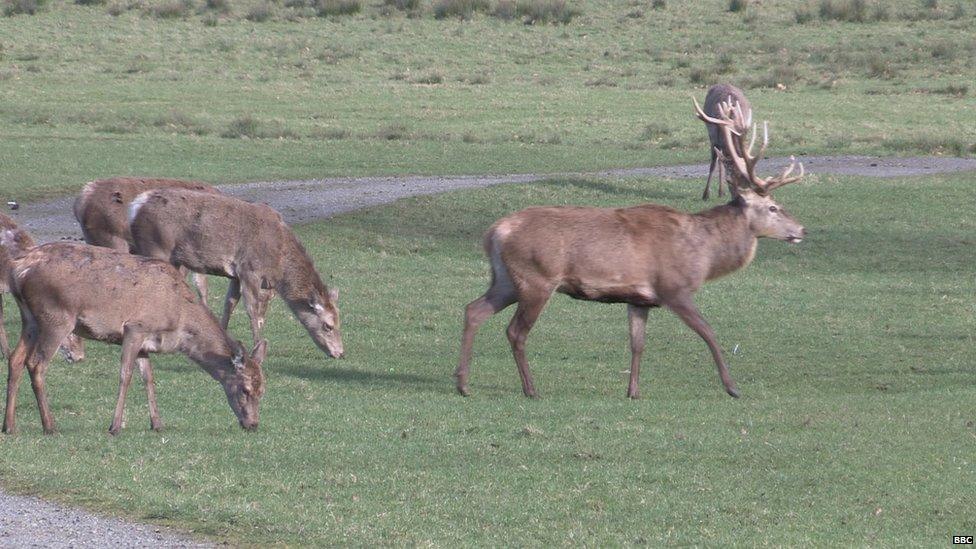
Red deer like this are a prime target of poachers
The Food Standards Agency has warned of the health threat posed by the poaching of deer.
It is believed attempts are made to get the meat into restaurants and shops but the agency said the way poachers handle a carcass could present a risk.
The PSNI says illegal hunting at night could result in someone being accidentally shot.
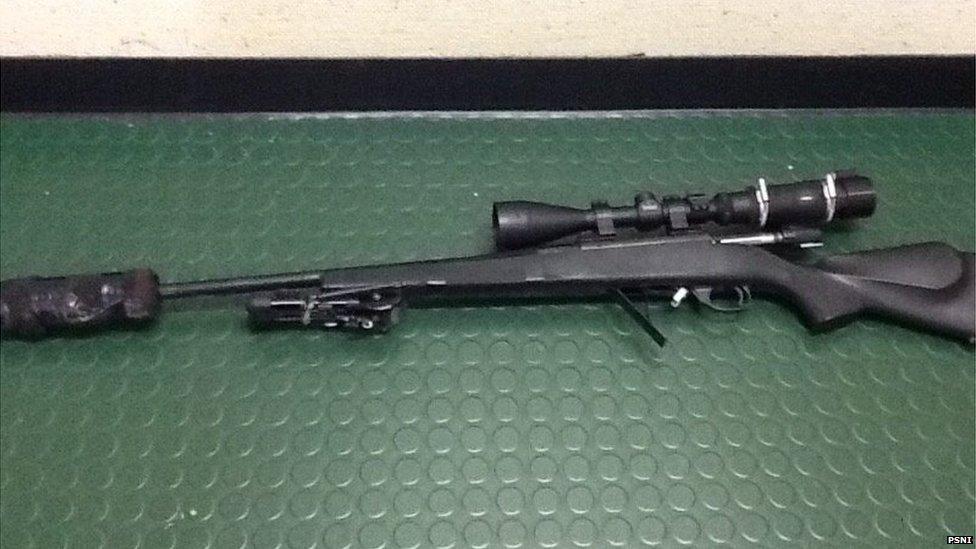
A rifle seized as part of Operation Wild Deer
Poaching has been a problem in Northern Ireland in recent years.
The reduced risk of taking a firearm into rural areas in recent years has contributed to it.
A carcass could be worth between £70 and £200 depending on weight and species.
The police have recently stepped up patrols near forests in the Clogher Valley.
Sgt Mervyn Carlisle is one of the officers trying to stop poaching.
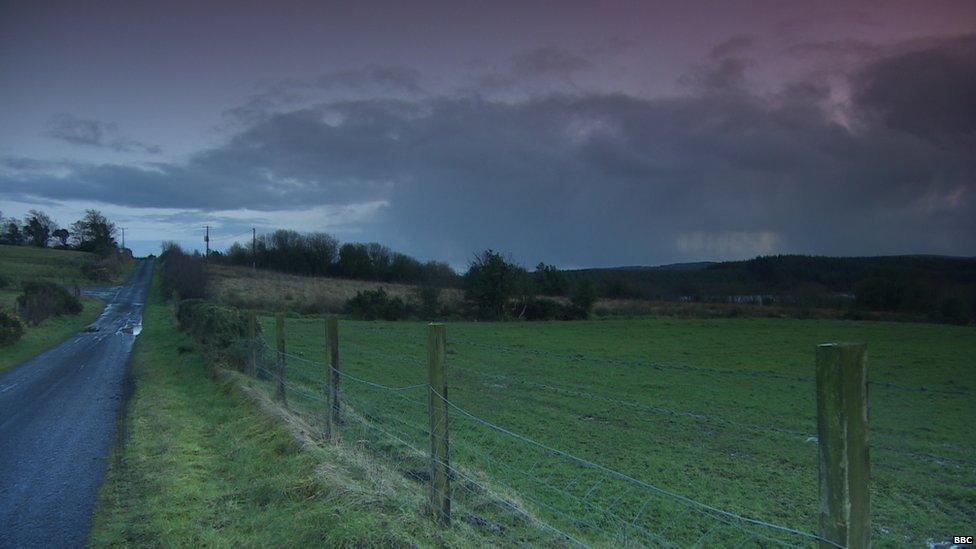
Road close to forests are used by the poacher gangs
He said poachers firing from vehicles at night, using lamps to target deer, cannot guarantee where the round will strike.
"If you miss you really don't know what's behind that animal and how far that round will go," he said.
"I can tell you it can go another mile and a half. In that line of fire, how many victims could there be, other animals or even worse human beings?"
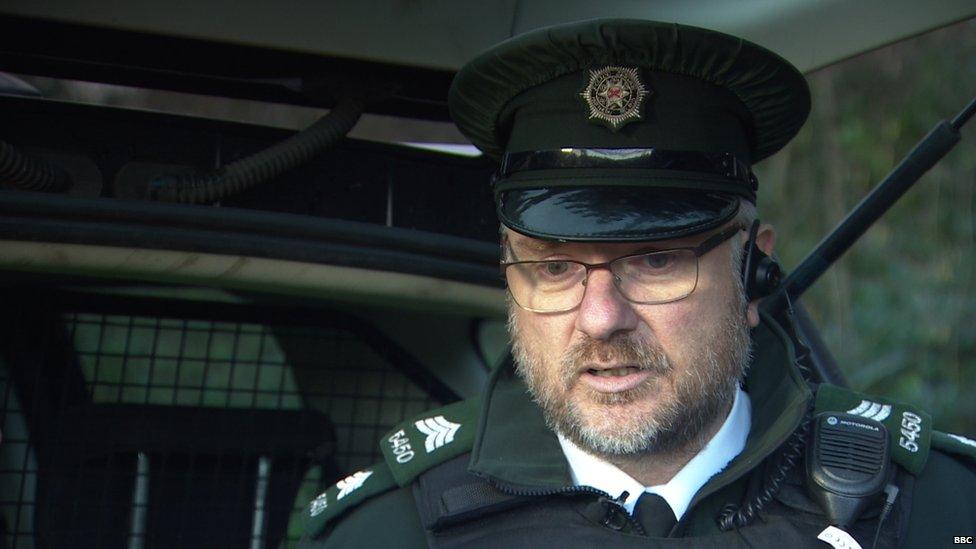
Sergeant Mervyn Carlisle of Operation Wild Deer
In an attempt to evade the law, poachers will sometimes tell officers they are lamping foxes - a practice that is still legal.
They will also butcher a shot deer on site but hang the carcass in a tree overnight so that they can return the following day to pick it up with no gun in the vehicle.
The Food Standards Agency said that practice could lead to the contamination of the meat.
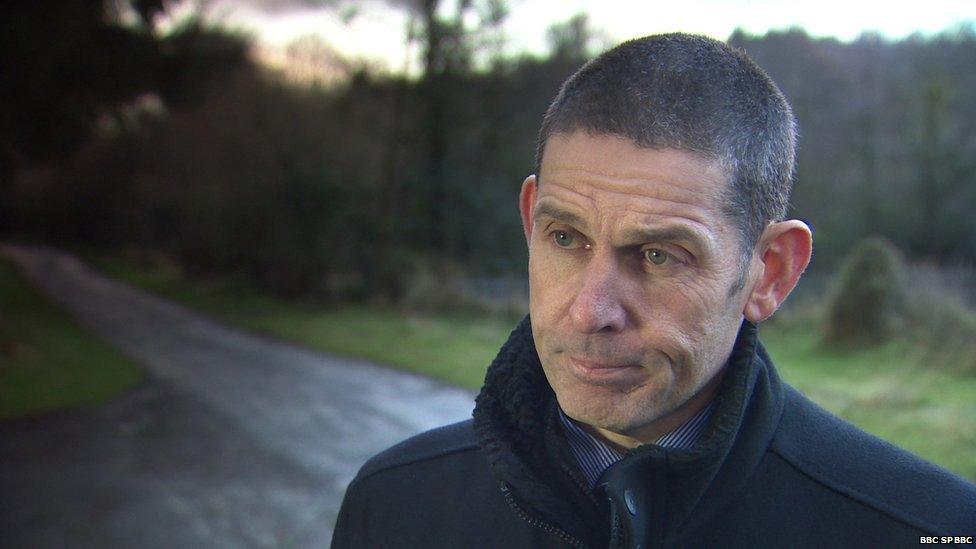
Ed McDonald of the Food Standards Agency
The agency's food fraud expert, Ed McDonald, said venison in such circumstances would not have been "handled stored or transported hygienically".
He said anything like that coming into the human food chain potentially "pose a risk to the public health".
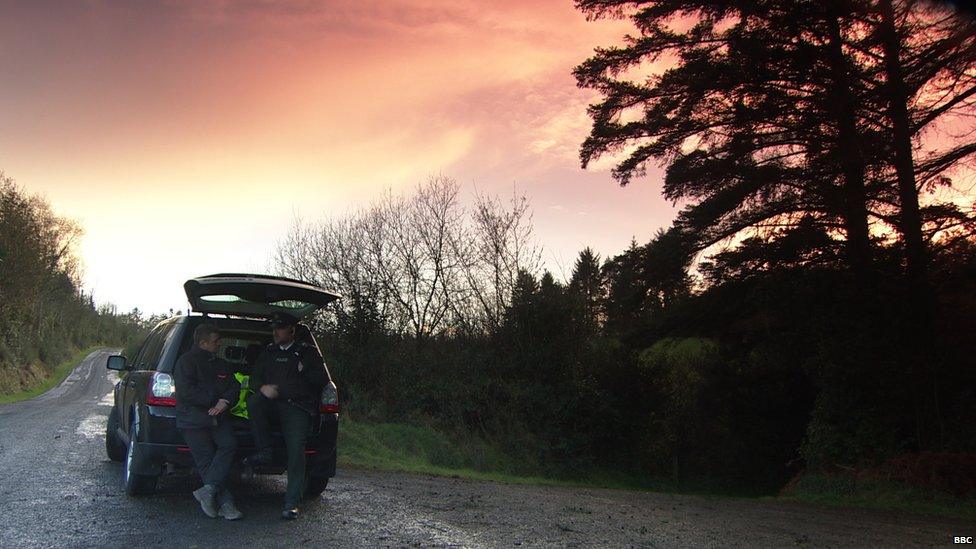
Poaching happens in isolated rural areas
Poaching is difficult to detect and proof of poaching is hard to obtain. The offence happens at night, in isolated areas, some of which are close to the border.
Last month, police seized a rifle after stopping a vehicle in the Clogher area as part of Operation Wild Deer, the name given to the increased patrolling.